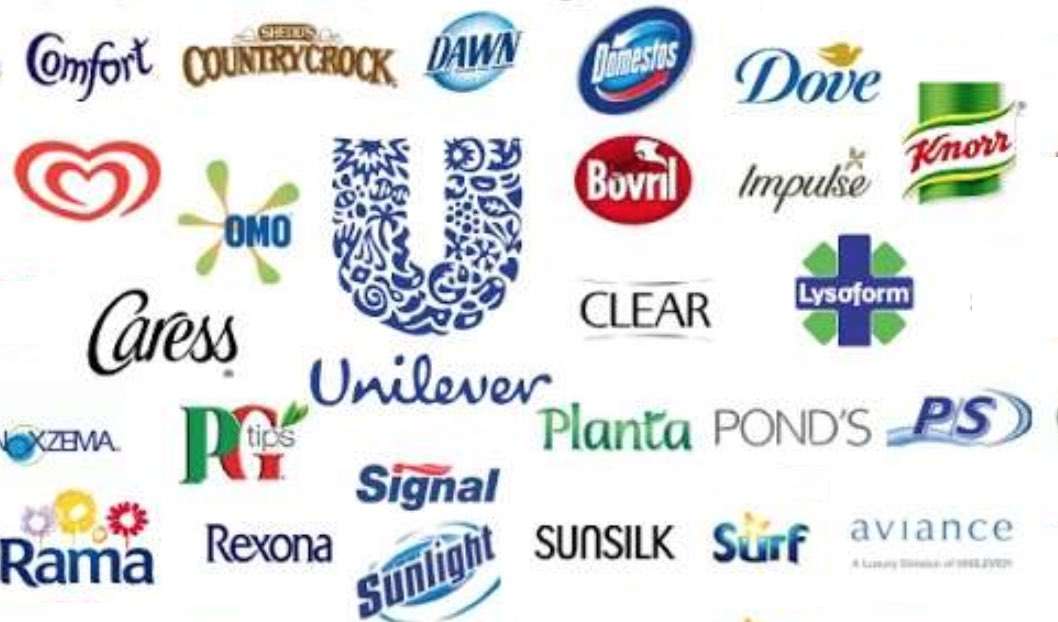Hormel Foods to Provide Free College Education to Children of All Its 16,000 Employees
Hormel Foods is giving free Community College tuition to any child of its 16,000 employees who graduates high school and meets admission rules.

One of the world's leading manufacturers of cleaning and laundry products, Unilever, announced it will accelerate the sustainability of its brands by sourcing 100% of the energy needed for its formulations with renewable or recycled carbon.
It may surprise you, but most cleaning and laundry products available today contain chemicals made from fossil fuel feedstocks, a non-renewable source of carbon.
Unilever's move to renewable or recycled sources for these chemicals is a deliberate shift away from the fossil fuel economy. The evolving green focus on its global products is a critical step towards Unilever's pledge of net zero emissions from its products by 2039.
The chemicals used in the cleaning products make up the greatest proportion (46%) of the products' lifetime carbon footprints—more than is produced, for instance, from making the plastic containers.
CHECK OUT: Unsold Beer From Australia‘s Lockdown Is Making Renewable Energy – And in Record Amounts
By transitioning away from fossil fuel-derived chemicals in product formulations, the company says it will unlock novel ways of reducing carbon footprints elsewhere.
Peter ter Kulve, Unilever's President of Home Care, said in a statement, "As an industry… we must stop pumping carbon from under the ground when there is ample carbon on and above the ground if we can learn to utilize it at scale."
"We've seen unprecedented demand for our cleaning products in recent months and we are incredibly proud to play our part, helping to keep people safe in the fight against Covid-19. But that should not be a reason for complacency. We cannot let ourselves become distracted from the environmental crises that our world—our home—is facing… This is the home we share, and we have a responsibility to protect it."
The British-Dutch company is setting aside €1 billion to finance biotechnology research, CO2 and waste utilization, and low carbon chemistry—which will drive the transition away from fossil fuel derived chemicals.
It may surprise you, but most cleaning and laundry products available today contain chemicals made from fossil fuel feedstocks, a non-renewable source of carbon.
Unilever's move to renewable or recycled sources for these chemicals is a deliberate shift away from the fossil fuel economy. The evolving green focus on its global products is a critical step towards Unilever's pledge of net zero emissions from its products by 2039.
The chemicals used in the cleaning products make up the greatest proportion (46%) of the products' lifetime carbon footprints—more than is produced, for instance, from making the plastic containers.
CHECK OUT: Unsold Beer From Australia‘s Lockdown Is Making Renewable Energy – And in Record Amounts
By transitioning away from fossil fuel-derived chemicals in product formulations, the company says it will unlock novel ways of reducing carbon footprints elsewhere.
Peter ter Kulve, Unilever's President of Home Care, said in a statement, "As an industry… we must stop pumping carbon from under the ground when there is ample carbon on and above the ground if we can learn to utilize it at scale."
"We've seen unprecedented demand for our cleaning products in recent months and we are incredibly proud to play our part, helping to keep people safe in the fight against Covid-19. But that should not be a reason for complacency. We cannot let ourselves become distracted from the environmental crises that our world—our home—is facing… This is the home we share, and we have a responsibility to protect it."
The British-Dutch company is setting aside €1 billion to finance biotechnology research, CO2 and waste utilization, and low carbon chemistry—which will drive the transition away from fossil fuel derived chemicals.
This investment will also be used to create biodegradable and water-efficient product formulations, to halve the use of virgin plastic by 2025, and support the development of brand communications that make these technologies appealing to consumers.
In Slovakia, for instance, Unilever is partnering with biotechnology firm Evonik Industries to develop the production of rhamnolipids, a renewable and biodegradable surfactant which is already used in its Sunlight dishwashing liquid in Chile and Vietnam.
In Tuticorin in Southern India, Unilever is sourcing soda ash—an ingredient in laundry powders—made using a pioneering CO2 capture technology. The soda ash is actually made with the CO2 emissions from the energy used in the production process. Both technologies are hoped to be scaled significantly under the program.
The sourcing of renewable carbon will be governed and informed by environmental impact assessments and work with Unilever's industry-leading sustainable sourcing programs to prevent unintended pressures on land use.
Tanya Steele, Chief Executive of WWF UK says, "These significant commitments from Unilever, combined with strong sustainable sourcing, have real potential to make an important contribution as we transition to an economy that works with nature, not against it."
The company's announcement this week builds on Unilever's existing ‘Clean Future' environmental commitments, including:
If you have an idea for an innovation, solution or opportunity to help Unilever's sustainability goals, you can submit them here.
SHARE The Good Sustainability News With Your Friends on Social Media…
Be the first to comment